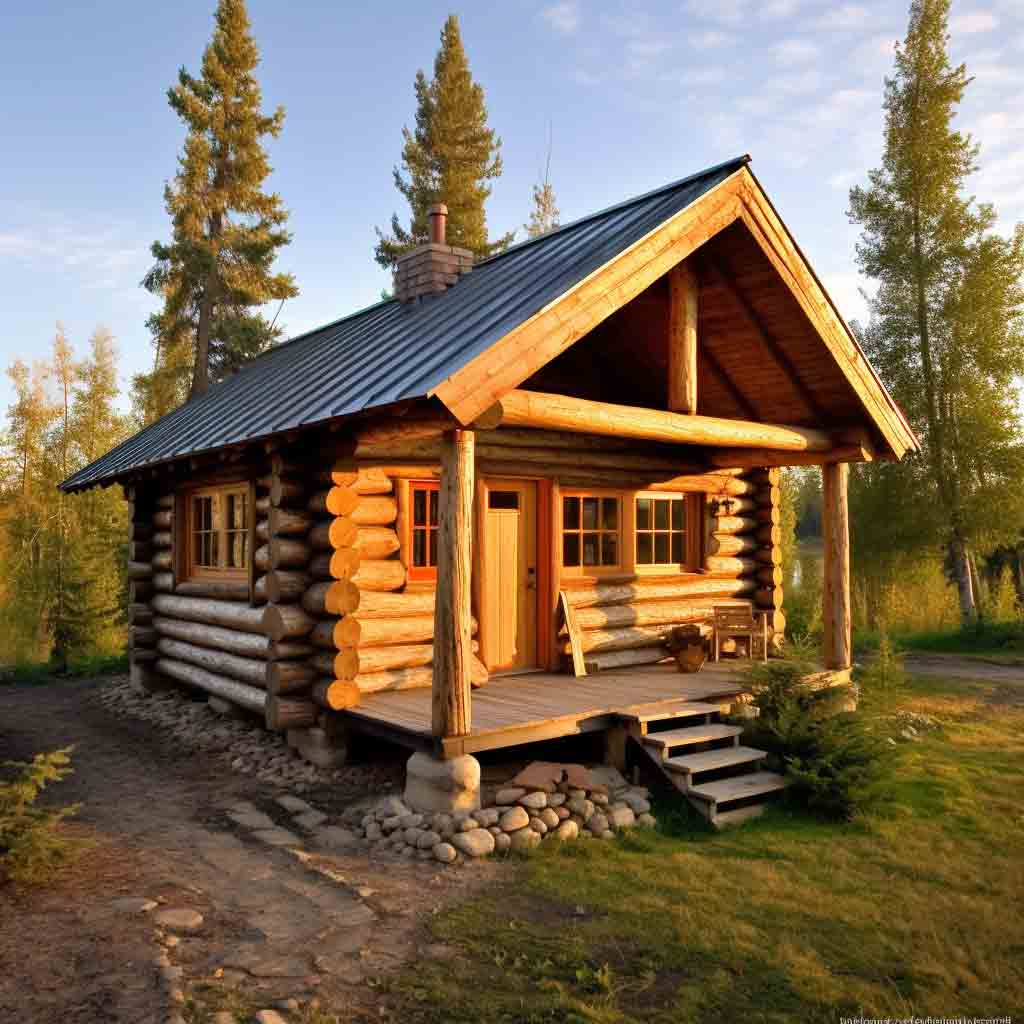Is It Worth Living Off the Grid? The Pros and Cons

Is It Worth Living Off the Grid? Weighing the Pros and Cons
The idea of living off the grid, detached from public utilities and embracing self-sufficiency, holds an allure for many. It offers a chance to disconnect from the demands of modern society, reduce environmental impact, and gain a sense of independence. However, before embarking on this alternative lifestyle, it's important to consider the pros and cons. In this article, we will explore the advantages and challenges of living off the grid, helping you weigh whether it is worth pursuing for your unique circumstances.
Pros of Living Off the Grid:
- Energy Independence: Living off the grid enables you to generate your own power from renewable energy sources such as solar panels or wind turbines. This energy independence grants freedom from rising energy costs, power outages, and reliance on centralized grids.
- Environmental Stewardship: By reducing reliance on fossil fuels and embracing sustainable practices, living off the grid allows you to minimize your ecological footprint. Generating clean energy and adopting sustainable habits contribute to a healthier planet and a more sustainable future.
- Financial Freedom: While the initial investment in off-grid infrastructure may be significant, the long-term financial benefits can be substantial. By generating your own energy and reducing reliance on public utilities, you can save significantly on utility bills and achieve greater financial independence.
- Self-Sufficiency and Resilience: Living off the grid encourages self-sufficiency, as you become responsible for your energy, water, and food production. Developing essential skills, such as gardening or sustainable living practices, fosters resilience and adaptability in the face of unforeseen events or disruptions.
- Connection with Nature: Living off the grid often involves embracing a closer connection with nature. Surrounded by natural beauty, you can enjoy a sense of peace, engage in outdoor activities, and develop a deeper appreciation for the environment.
Cons of Living Off the Grid:
- Initial Investment: Establishing an off-grid system requires a significant upfront investment in infrastructure such as solar panels, batteries, water storage, and alternative waste management systems. The costs can vary depending on the scale and complexity of the setup.
- Lifestyle Adjustments: Off-grid living often entails adjusting to a simpler lifestyle with reduced reliance on modern conveniences. This may involve conscious energy and water usage, adopting sustainable habits, and accepting certain limitations on resource availability.
- Maintenance and Responsibility: Living off the grid requires ongoing maintenance and monitoring of your energy and water systems. You must be prepared to troubleshoot issues, manage storage capacities, and ensure the smooth functioning of your off-grid infrastructure.
- Limited Amenities: Depending on your location and setup, living off the grid may mean limited access to amenities such as high-speed internet, cable television, or nearby conveniences like grocery stores or medical facilities. Remote locations can present challenges in terms of accessibility and convenience.
- Potential Isolation: Off-grid living, particularly in remote areas, can lead to social isolation. Limited interaction with neighbors and reduced access to community resources may require individuals or families to develop strategies for maintaining social connections.
The decision to live off the grid is a deeply personal one that requires careful consideration of the pros and cons.
While it offers energy independence, environmental stewardship, financial freedom, and a closer connection with nature, it also entails initial investments, lifestyle adjustments, and potential limitations in amenities and social connections.
It is crucial to evaluate your individual priorities, resources, and readiness to embrace a self-sufficient and sustainable lifestyle.
Yes! It is absolutely worth it to live off the grid.
Ultimately, the worth of living off the grid depends on your values, goals, and commitment to sustainable living.
It offers a unique opportunity to live more intentionally, reduce environmental impact, and gain a sense of independence.
By weighing the pros and cons, you can make an informed decision.
Don't expect that living off the grid is going to be "easy". The off grid lifestyle might be for living the "simple" life, but don't confuse that with easy.
You will need to work hard to build and maintain your off grid homestead. The point to off grid living isn't to live the life of luxury. That is an increasingly common misunderstanding about this lifestyle. It's not about luxury or easy living. It's about building your life free from the system that makes you dependent on it. It's about building a sustainable life. A life where you can be 100% self reliant and not dependent on the system for your shelter, water, food and utilities.
Building all that takes a lot of work!
It's going to take many years to build it and you will shed a lot of blood sweat and tears in your off grid journey. You will get cuts and scrapes and splinters. You will break more than a few nails. You will cry your eyes out thinking the world is over and you will want to quit. But you won't, because you are building a new life, off the grid, self reliant and independent. Free from the system that enslaves you with debt and bills and low wages. A system that charges you outrageous amounts of money for the things you need to live.
Living off the grid means you produce your own shelter, water, power, food, and utilities, and that requires a lot of hard work.
The Will To Live Off-The-Grid
This is where your willpower, your resolve and your discipline comes into play. You must have the willpower to see it through to the end goal. The end-game is your freedom! Your freedom is worth the work. Freedom isn't free. It takes blood, sweat and tears to build a free life and you'll need to have the resolve to not quit when the going gets tough.
In the end it's worth it. It has to be worth it. Freedom is worth the price you pay to achieve it. If you have to work everyday for the rest of your life to build and maintain your off-grid homestead, then so be it.
The Rewards Of Living Off-The-Grid
You will be 100% self reliant, independent and free. The sense of accomplishment, the fulfillment, the pride of building your own cabin, growing your own food, producing your own water and food, and living more simply, away from the rat-race that is modern society. That will give you a peace of mind and well-being that most people will never achieve.
The entire world and human civilization could collapse around you and that you and your family will be ok.
You will survive.
You will be free!





